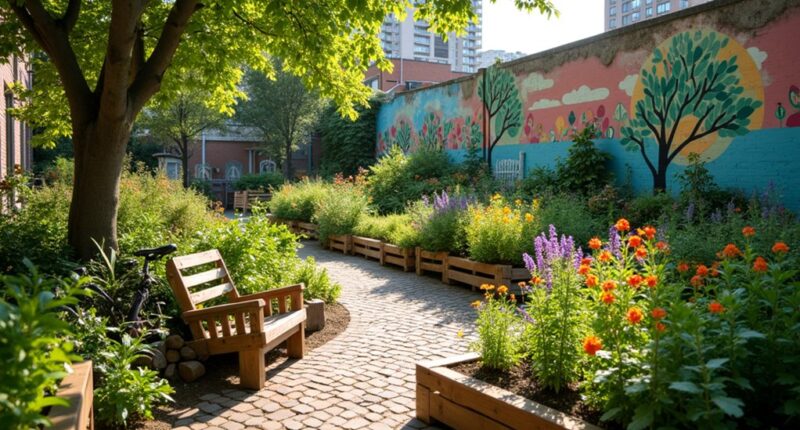The UK is hitting some impressive sustainability milestones! Emissions dropped 2.5%, showcasing the power of its electricity sector. Meanwhile, electric vehicle sales skyrocketed, with the Tesla Model Y leading the zoom. Communities are getting creative too, with over 150 local projects like Hulme Urban Green Spaces sprouting up, transforming cities into green havens. And yes, it’s not just about saving the planet, but also sparking joy—like a neighborhood block party, but with composting! Discover more inspiring stories ahead.
Quick Overview
- The UK achieved a 2.5% reduction in emissions in 2024, marking significant progress towards its 2030 target of a 68% reduction.
- Electric vehicle sales surged to 381,970 units in 2024, with battery electric vehicles representing 19.6% of new registrations.
- Rapid expansion of EV charging infrastructure is supporting the transition to cleaner transport, alongside falling vehicle prices and increased ranges.
- Citizen-led projects like Hulme Urban Green Spaces and repair cafes are transforming communities and promoting sustainability while creating local economic opportunities.
- Over 150 regions are actively engaged in climate adaptation efforts, showcasing grassroots initiatives aligned with net zero goals.
Progress in UK Emissions Reduction
As the UK steps boldly forward on its journey to reduce greenhouse gas emissions, it’s clear that progress has been made—though the challenges ahead are as formidable as a marathon runner facing a steep hill just before the finish line. In 2024, emissions dipped to 413.7 MtCO₂e, a 2.5% drop from 2023, making the UK the first major economy to halve emissions since 1990. The electricity sector drove much of this success, thanks to the coal phaseout. However, rising aviation emissions now pose a new hurdle, reminding everyone that the race to Net Zero is far from over. This ongoing effort is critical as UK greenhouse gas emissions must continue to decline to meet the ambitious target of a 68% emissions reduction by 2030. Companies and organizations are increasingly adopting science-based targets to ensure their reduction goals align with limiting global warming. To achieve this, the government must address significant gaps between targets and policy trajectories to ensure that efforts align with 1.5°C pathways.
The Rise of Clean Transport and Electric Vehicles
The UK’s journey toward a greener future isn’t just about cutting emissions; it’s also about revving up the wheels of clean transport and electric vehicles (EVs).
In 2024, sales soared to 381,970, capturing nearly 20% of new car registrations. Battery electric vehicles accounted for 19.6% of new car registrations in 2024. The Tesla Model Y zoomed ahead as the best-seller, with rapid charging infrastructure expanding like a well-planned road trip. YTD-25 total electric car registrations reached 1,578,172 units, up 4.2%.
With prices dropping and ranges skyrocketing—up to 452 miles—EVs are becoming as common as rainy days in the UK. Major automakers have committed to phase out deadlines for combustion engines, signaling the industry’s permanent shift toward electrification. As manufacturers adapt and policies evolve, the clean transport revolution is not just on the horizon; it’s already cruising down the road.
Empowering Citizen-Led Sustainability Initiatives
How might communities transform their neighborhoods into vibrant, sustainable spaces?
By embracing citizen-led initiatives, they create green havens that breathe life into urban areas. Across the UK, projects like Hulme Urban Green Spaces and Cultivating Common Ground showcase community creativity, turning parking lots into lush gardens and rural arts hubs. With 150+ regions engaging in climate adaptation, local voices shape solutions. Imagine repair cafes where broken gadgets find new life—talk about sustainability! These grassroots efforts not only reduce waste but empower residents to influence policies, ensuring their needs are heard. Creating economic opportunities through local sustainability projects helps build resilient communities where people can thrive long-term. Achieving net zero is a critical goal that can be supported through community initiatives, such as the arts and creativity projects that strengthen local communities. It’s a win-win: healthier communities and a happier planet!









